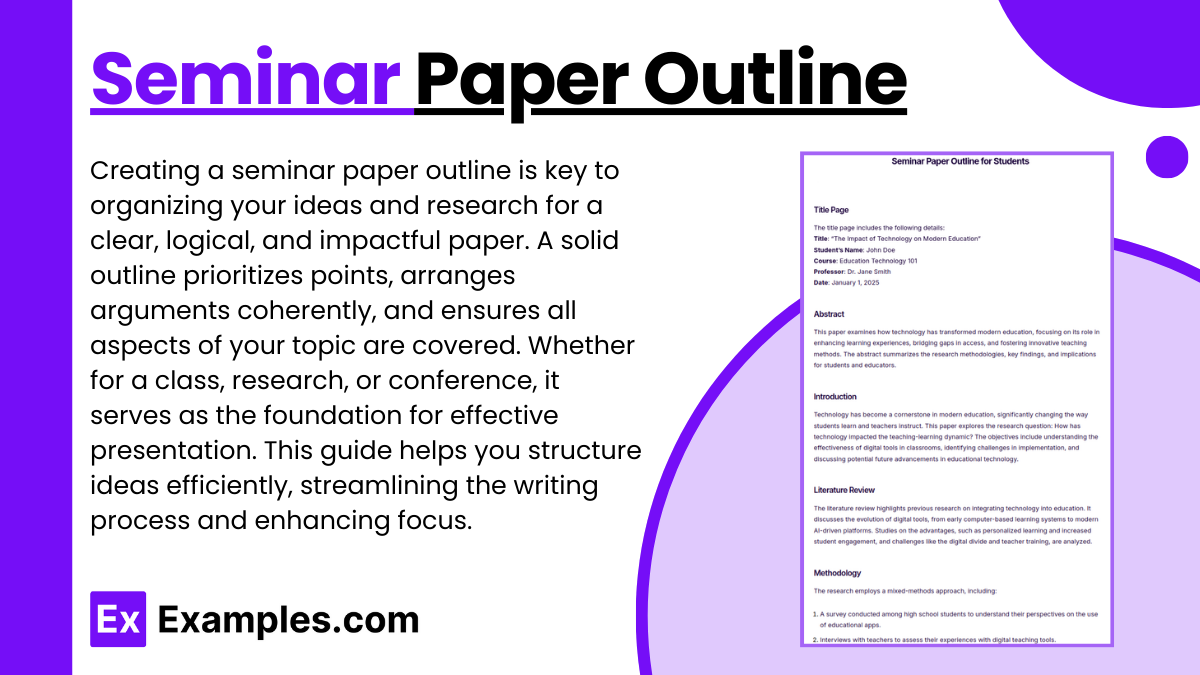10+ Seminar Paper Outline Examples to Download
Creating a seminar paper outline is an essential step in organizing your thoughts and research, ensuring that your paper is well-structured and flows logically. This guide will provide you with a straightforward approach to drafting an effective outline, which is crucial for writing a clear and impactful seminar paper. Whether you are a student preparing for a class, a researcher sharing findings, or a professional presenting at a conference, a solid outline serves as the backbone of your presentation. It helps you to prioritize your points, arrange your arguments coherently, and ensure that you cover all necessary aspects of your topic. By following this guide, you’ll learn how to structure your ideas efficiently, making the writing process smoother and more focused.
What is Seminar Paper Outline?
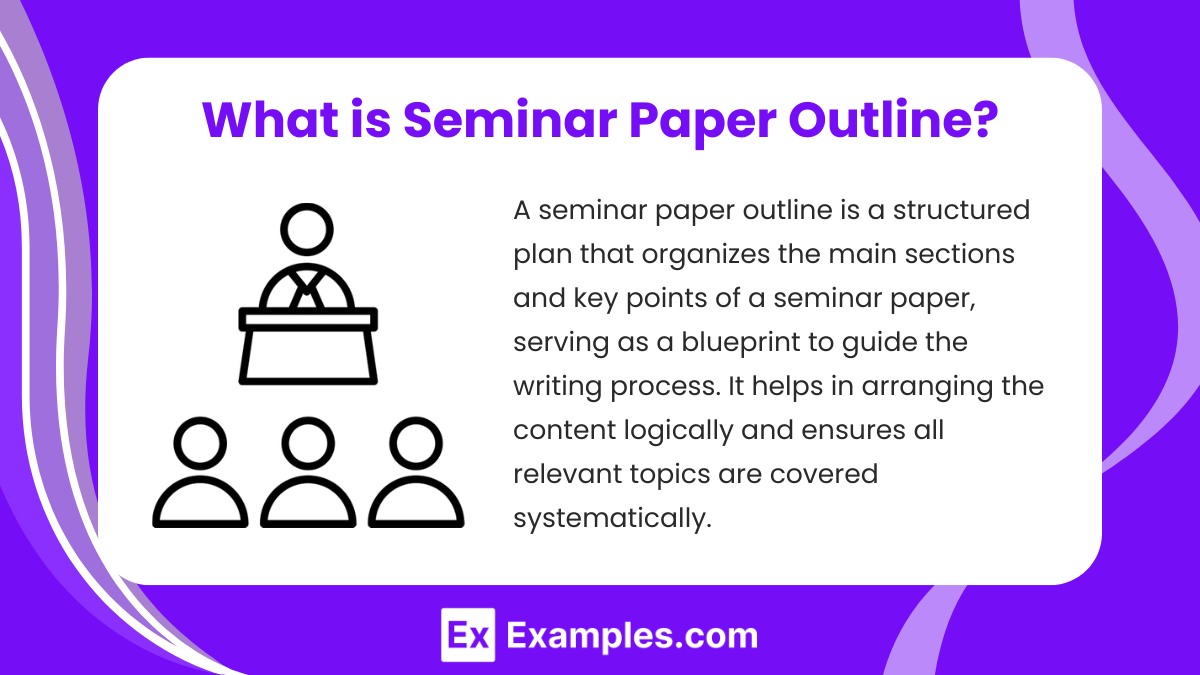
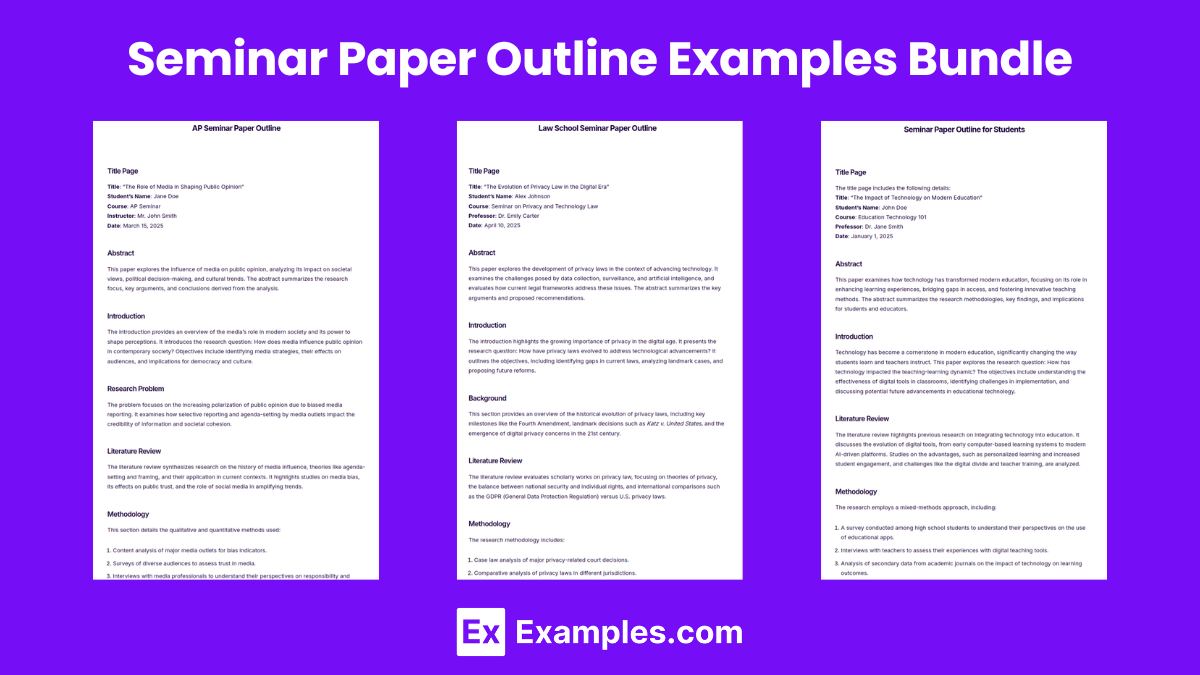
Seminar Paper Outline Examples Bundle
Seminar Paper Outline Format
Title Page
Title of the paper
Your name
Course title
Instructor’s name
Date
Abstract
Brief summary of the key points of your paper, including the topic, methods, main findings, and conclusions.
Introduction
Introduction to the topic, statement of the problem or research question, importance of the topic, objectives and aims of the paper, and overview of the structure of the paper.
Literature Review
Summary of relevant existing research and discussion of how this research relates to your topic, including identification of gaps in current knowledge.
Methodology
Description of the research methods used and explanation of data collection and analysis techniques.
Results
Presentation of the findings from your research or analysis.
Discussion
Interpretation of the results and integration of results with the literature review to discuss similarities and differences.
Conclusion
Summary of the findings, implications of the research, and suggestions for future research.
References
List of all sources cited in the paper.
Appendices (if applicable)
Additional data, charts, images, or other relevant material.
Seminar Paper Outline Examples
Seminar Paper Outline for Students
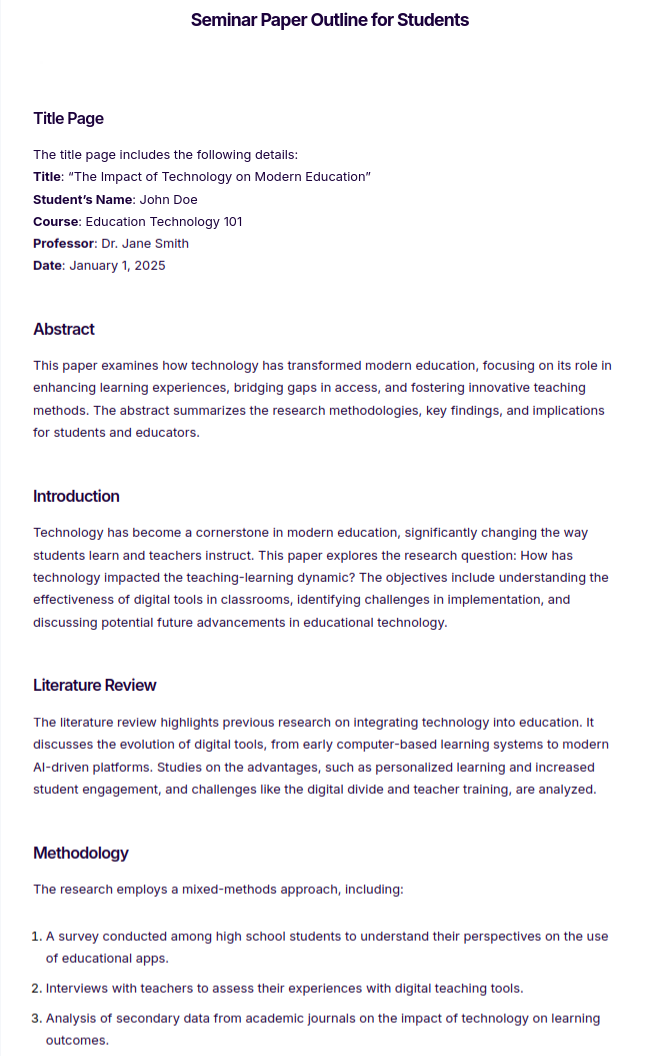
AP Seminar Paper Outline
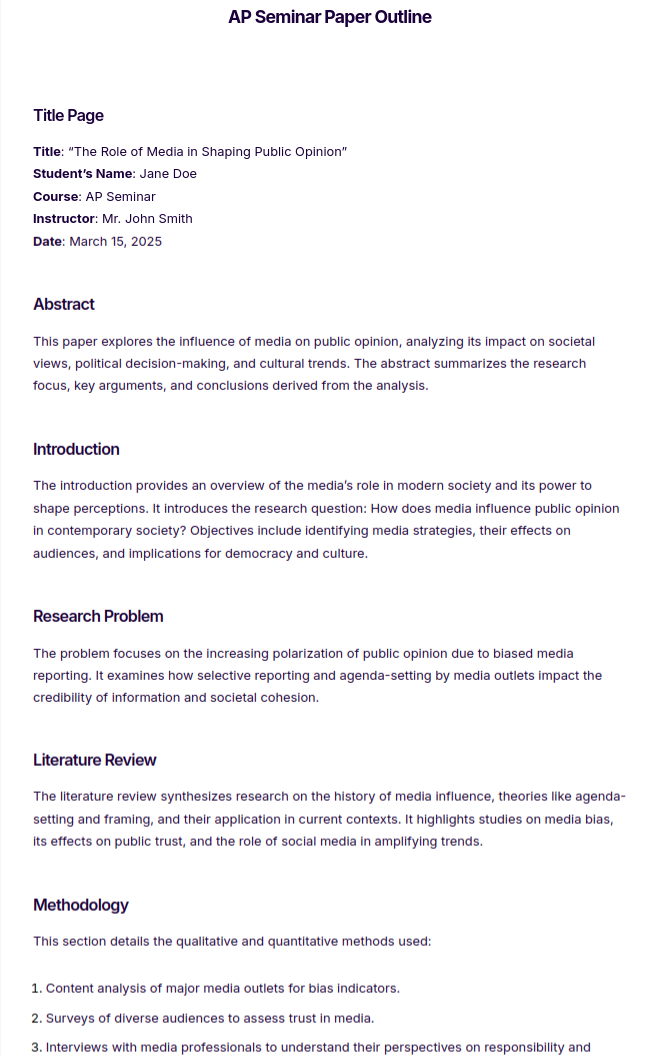
Law School Seminar Paper Outline
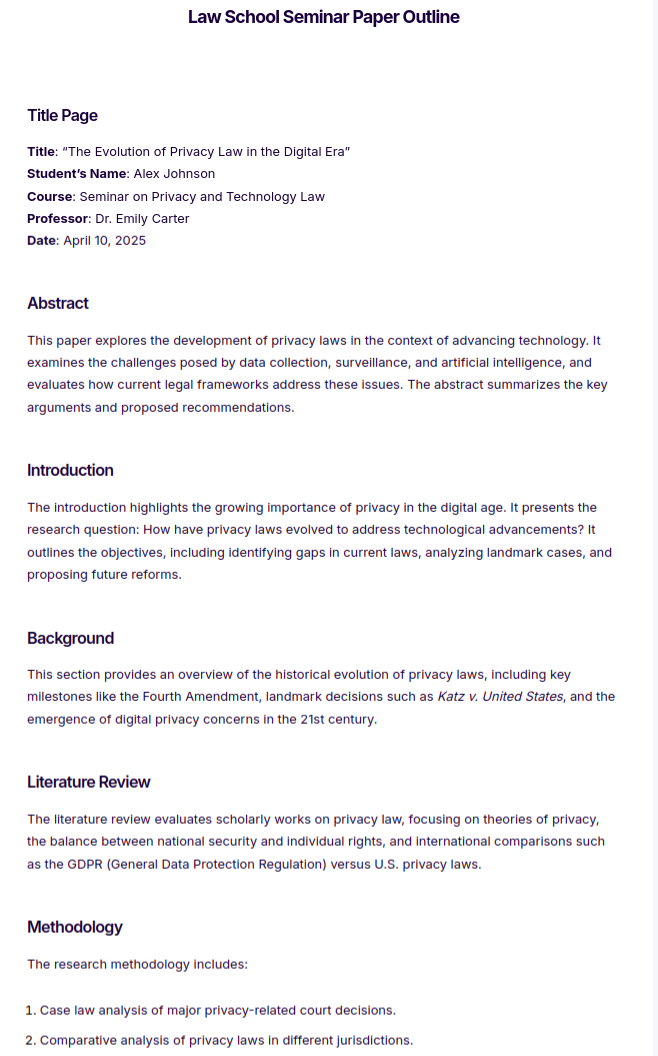
More Examples on Seminar Paper Outline
Simple Seminar Paper Outline
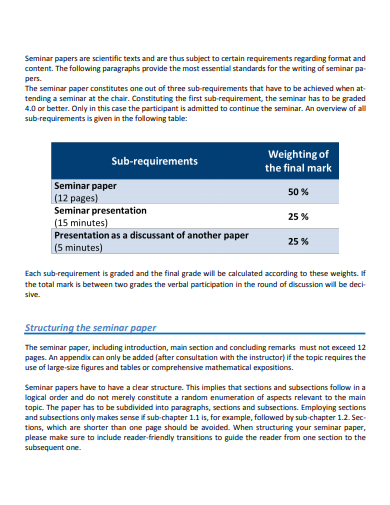
Sample Seminar Paper Outline
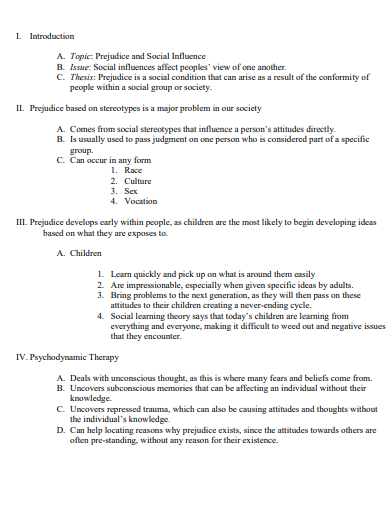
Formal Seminar Paper Outline
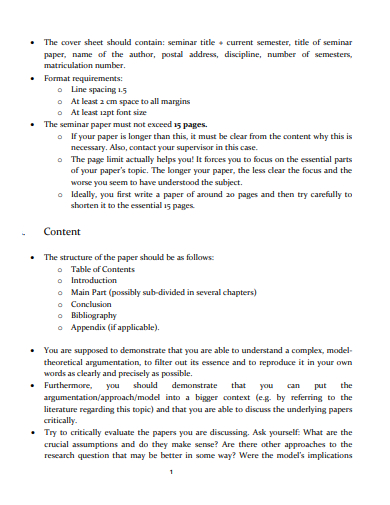
Seminar Paper Outline in PDF
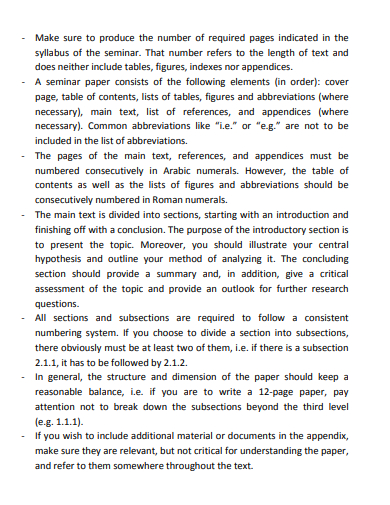
Seminar Outline Paper Template
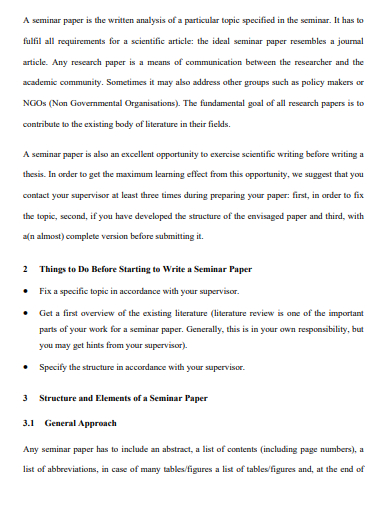
Printable Seminar Paper Outline
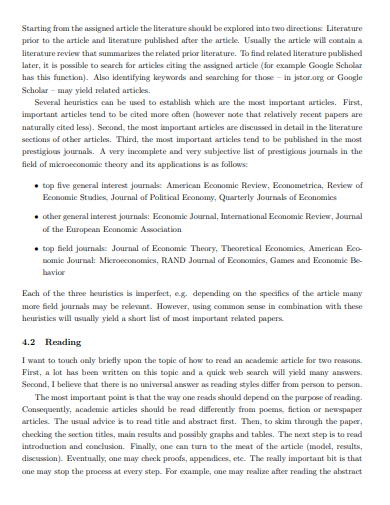
Editable Seminar Paper Outline
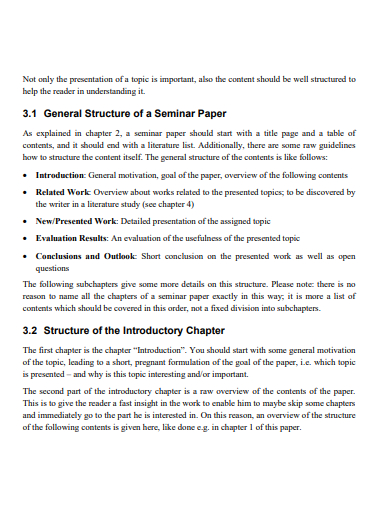
Seminar Paper Outline Format
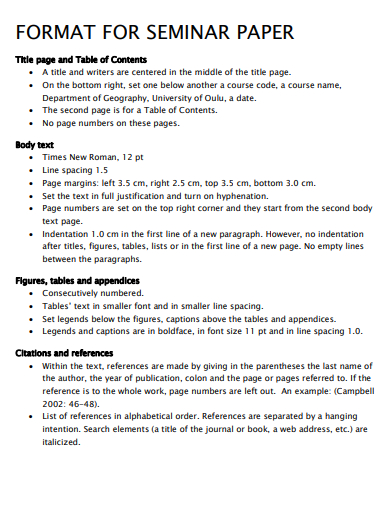
How to Write an Outline for a Seminar Paper

- Choose a Clear Topic: Select a specific and manageable topic that aligns with the seminar theme and interests your audience.
- Research and Gather Information: Conduct thorough research using reliable sources to gather data, theories, and examples relevant to your topic.
- Create a Structure: Divide the outline into key sections such as Title Page, Abstract, Introduction, Main Body (with subheadings), Conclusion, and References.
- Develop Main Points: Identify and organize the main arguments or ideas under each section, ensuring logical flow and coherence.
- Add Supporting Details: Include evidence, data, or examples under each main point to support your arguments effectively.
- Review and Refine: Ensure the outline is clear, concise, and aligned with the seminar objectives, and refine it for clarity and organization.
FAQs
Why is an outline important?
An outline is crucial as it provides a clear structure, helps organize ideas, ensures all key points are covered, and saves time by guiding the writing process effectively.
What should be included in the outline?
A complete outline should include a title page, abstract, introduction, main body with headings and subheadings, conclusion, and references, organized logically to support the paper’s argument or focus.
How do I start an outline?
Begin by selecting a focused topic, conducting thorough research, and dividing the paper into sections. Then, list main ideas under each section, ensuring they align with your objectives.
Can I revise the outline later?
Yes, you can and should revise the outline as you gather more information or refine your arguments. A flexible outline helps adapt to new insights or changes in focus.
How detailed should a seminar paper outline be?
It should be detailed enough to guide the writing process effectively but flexible to accommodate changes. Include main points, subpoints, and evidence to maintain a logical flow.
How detailed should a seminar paper outline be?
It should be detailed enough to guide the writing process effectively but flexible to accommodate changes. Include main points, subpoints, and evidence to maintain a logical flow.


